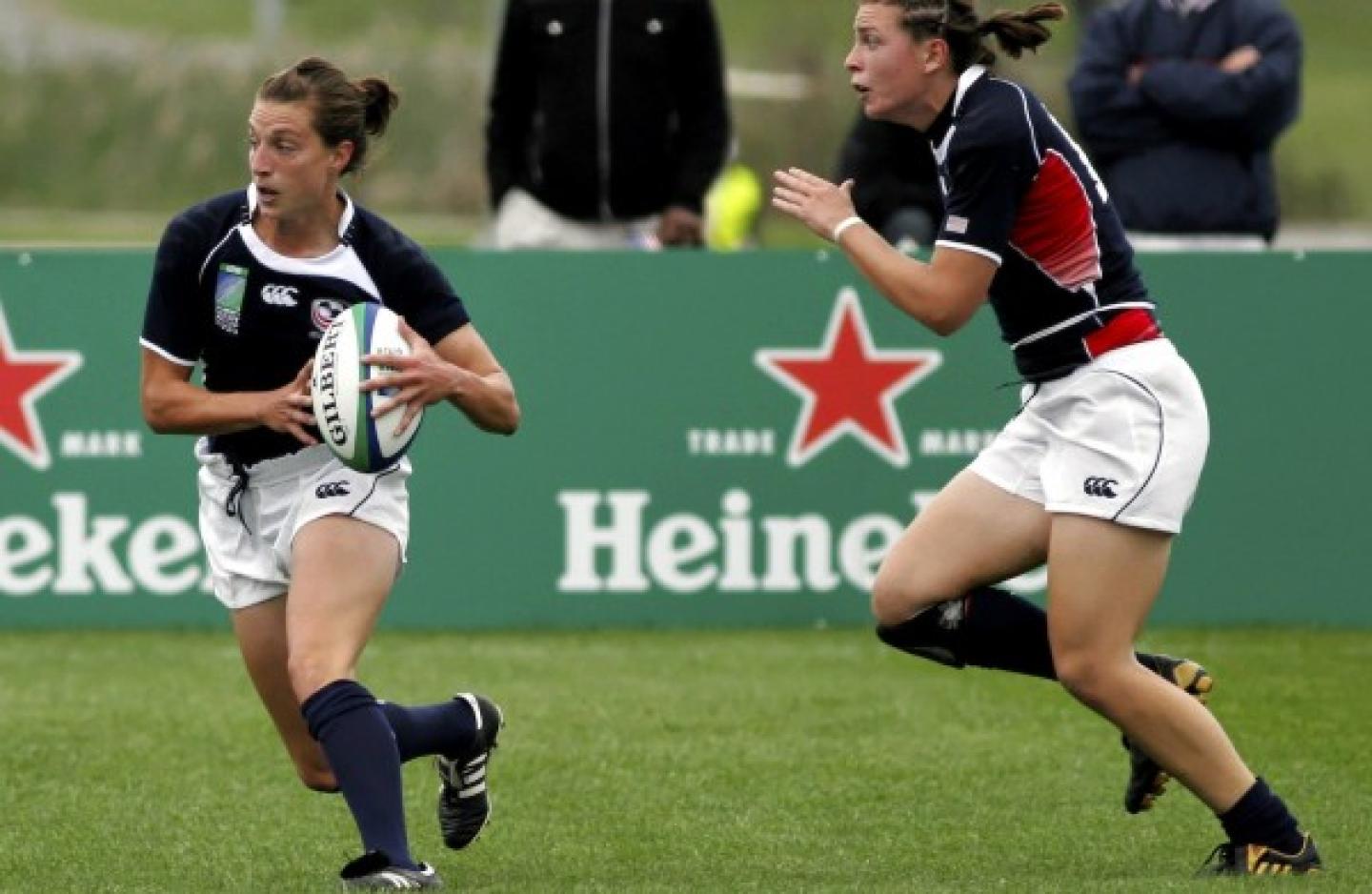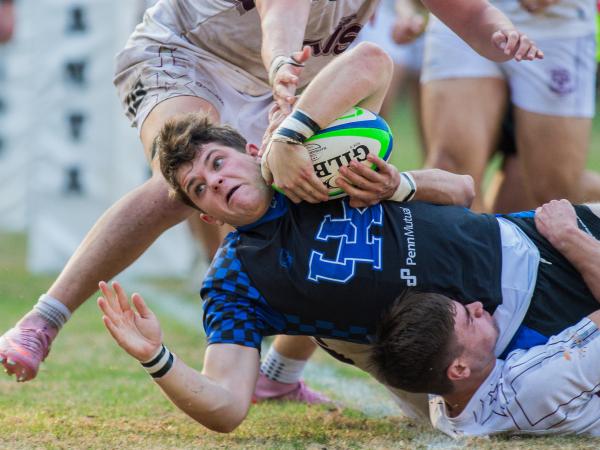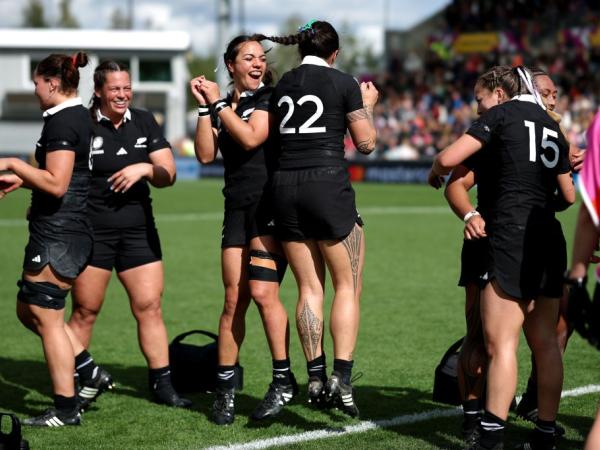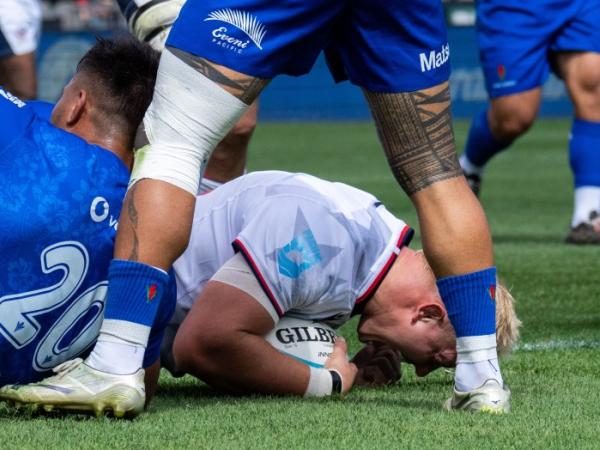The USA Women’s National Team is on its way to France now with an eye toward another Women’s World Cup.
It’s been a hard slog for the program for the past 16 years, since the Eagles were automatically considered one of the best in the world. This WWC is a chance to get back there.
The USA was ready back in 1991 when the first World Cup was held, as American rugby had better athletes in women’s rugby and more enthusiasm for women’s rugby than some other nations. The result was a startling performance where they allowed just six points - all to England in the final (won 19-6 by the USA) - and shut out the Netherlands, USSR, and New Zealand.
Three years later the Eagles unleashed one of the most potent offenses women’s rugby has ever seen, with Jen Crawford Patty Jervey, and Candi Orsini among the backs that scored 308 points in three pool matches before beating Wales in the semis and then losing 38-23 to England in the final.
Four years later in 1998, things were a shade tougher, but they made the final, before losing to a brilliant New Zealand team 46-12.
So that was three World Cups, three appearances in the final, and one championship. After that, things changed. The central players in those teams retired. The system produced some strong talent to replace them, but not enough, and the domestic competitions didn’t seem to prepare players for the ever-improving world of women’s international rugby.
The result was an uninspiring 2002 campaign that saw the Eagles go 2-2 and finish a shocking 7th. That World Cup essentially cost coach Martin Gallagher his job, and ushered in Kathy Flores, who held the reins for the next eight years. During that time Flores made getting on the team tough, and made playing for the team more enjoyable. She found tested players and new talents, and the result was a much-improved performance in 2006 - Won 4, Lost 1, 5th place. They were actually as good as the #3 team, and were undone by the tournament structure.
In 2010 the Eagles were not quite as good, but edged Canada for 5th once again.
So that brings us to 2014, where 5th might well be where the Eagles end up once more.
But, they will do it with a somewhat different team than in recent years.
A big part of the change is up front, where Head Coach Pete Steinberg is quite happy to have one or two big, powerful, but not necessarily super-mobile, props on hand. The Eagles need to match up physically against their opponents, and with that in mind he has picked a forward pack that can scrum, and can hit.
In the backs, they still are young and somewhat inexperienced in places. This is a complete change from just about every previous World Cup, where the USA backs have been a strength, but at times were starved of the possession they needed to wield that strength.
But that doesn’t mean the backs aren’t good. In fact, some, like Emilie Bydwell, are in their prime, and others, like Meya BIzer, are young but have basically challenges other, older players to be as good. What Steinberg has done in his choices is to not run with the same player if she keeps making the same mistakes. Some of the backline that lost to France in 2013 because they wouldn’t pass wide where there was an overlap are staying home.
Where the Eagles as a whole harken back to 1991 is on defense. They held England to 17 points in a warmup match, and Wales to just seven. It is on defense where they will win games.
But will they win enough to make the top four? It’s unlikely. The tournament puts the three pool winners in the semifinals, plus the best 2nd-place team. New Zealand is in the USA’s pool, along with Kazakhstan and Ireland. None of those teams is a pushover.
And they need to be pushed over, as competition points will be the first criterion by which the 4th semifinalist will be decided.
What that means is, the best #2 team out of the pools will likely have collected at least two bonus points for four tries, and may well have achieved a close loss against their pool winner. Canada and England look to have an almighty clash in Pool A. In Pool C, France should probably be better than Australia, but the Aussies know how to score tries.
The USA, then, will have to keep it close against New Zealand (no easy feat), and score four tries against Ireland and Kazakhstan. Given that in their last 16 test matches, the Eagles have scored four tries exactly three times, therein lies the problem.
If the Women’s World Cup were a straight win-loss proposition, with four pool of four, and the top two going into the quarterfinals, I would like the Eagles’ chances of getting to the semis, and even the final. But that’s not the case. The knockout round seeding as it is now means that bonus points are in play, and that will make it all the harder.
So, perhaps USA Rugby’s odd slogan of “Final in ’14” which somehow raises expectations and at the same time says winning it all is not in the cards, might not be fulfilled. It might again be the case that 5th is where the Eagles end up. If that’s the case, it shouldn’t be a finish fans are ashamed of. Given that there’s a certain amount of luck involved in the knockout seeding, maybe what we should be hoping for is enough growth in women’s rugby that the tournament expands to 16, and you’re not dependent on whether a team in another pool gets a bonus point or not.
Interesting to note, here is a comparison of the USA and Canada in the Women’s World Cup. See how won-loss records haven’t always jibed with ranking:
| Women's World Cup Comparison | USA | Canada | ||
| Record | Finish | Record | Finish | |
| 1991 | 4-0 | 1 | 3-1-1 | 5 |
| 1994 | 4-1 | 2 | 2-3 | 6 |
| 1998 | 4-1 | 2 | 2-3 | 4 |
| 2002 | 2-2 | 7 | 2-2 | 4 |
| 2006 | 4-1 | 5 | 2-3 | 4 |
| 2010 | 3-2 | 5 | 3-2 | 6 |
| Total | 21-7 | 14-14-1 | ||
| Avg. | 3.67 | 4.83 | ||
Three times Canada finished with a losing record, but took 4th. Yes, those losses were against strong teams, but it shows also that finishing 5th (as the USA did in 2006 with a 4-1 record) can be viewed as a more impressive accomplishment.
In 2010, the USA entered the 5th-place match with a 2-2 record, while Canada was 3-1, but the USA won the game 23-20.
Of the seven losses the Eagles, three have been to England, with others to New Zealand, Ireland, France, and Australia.
































































